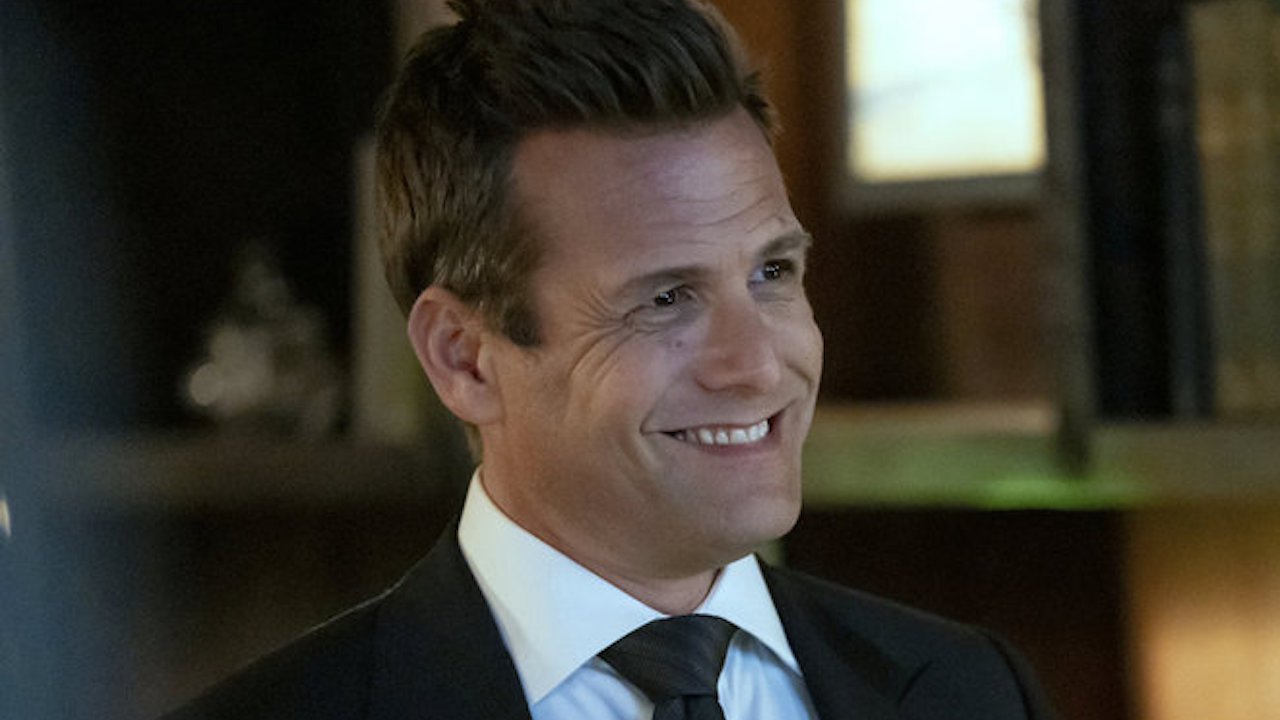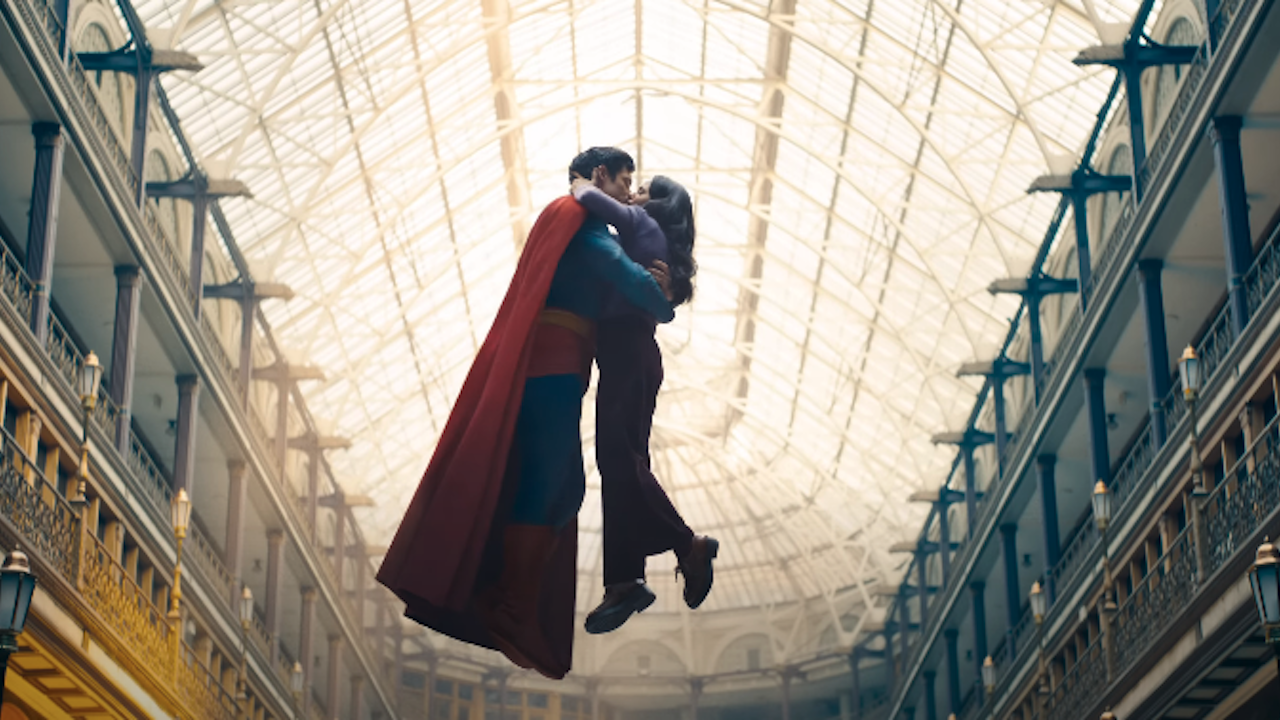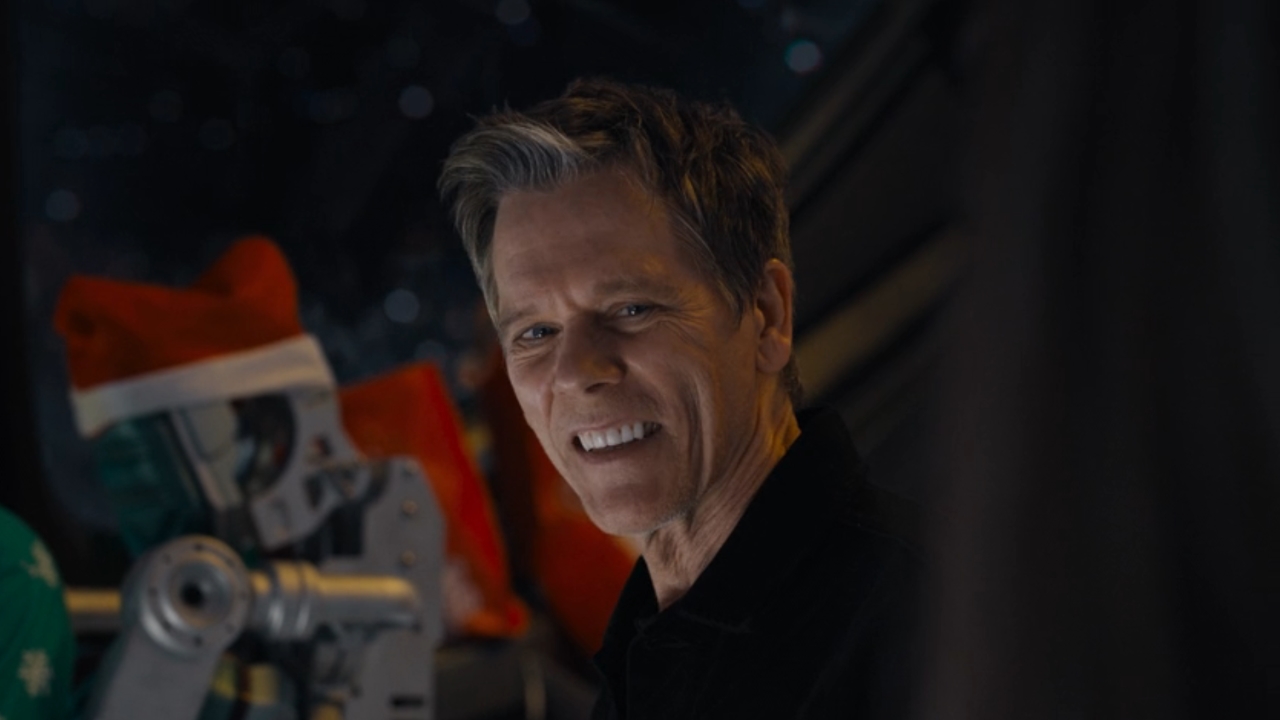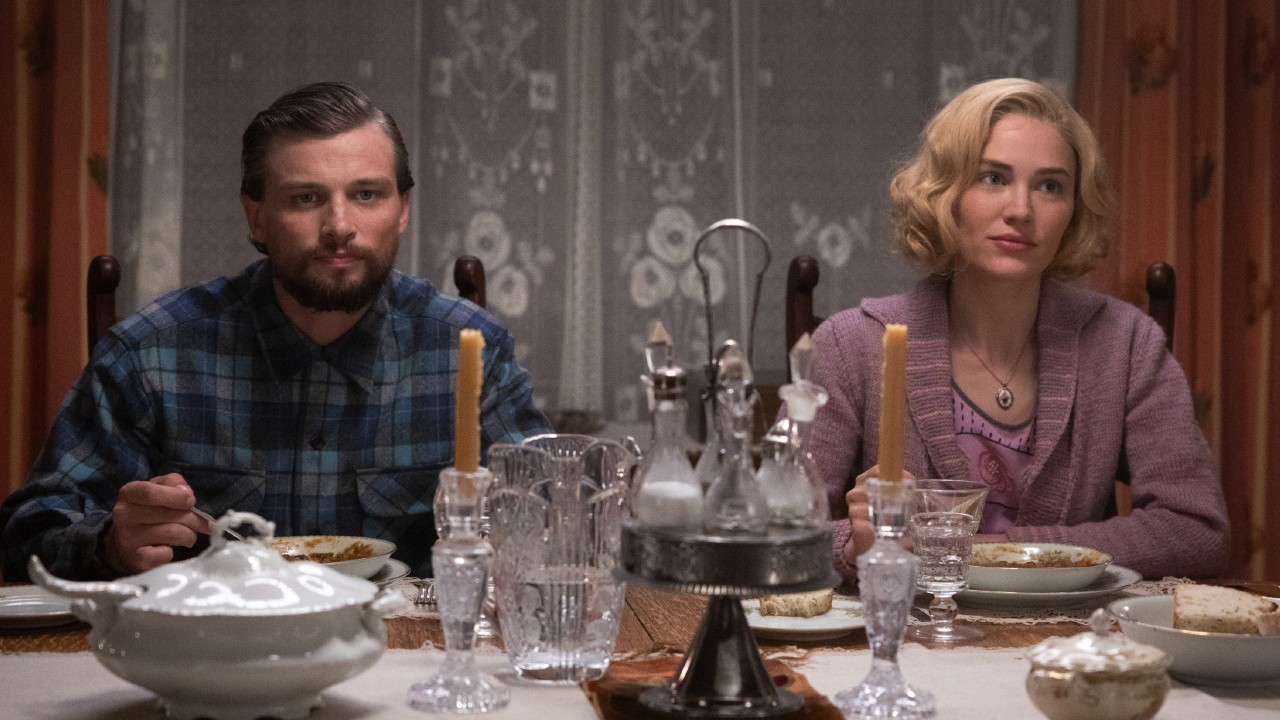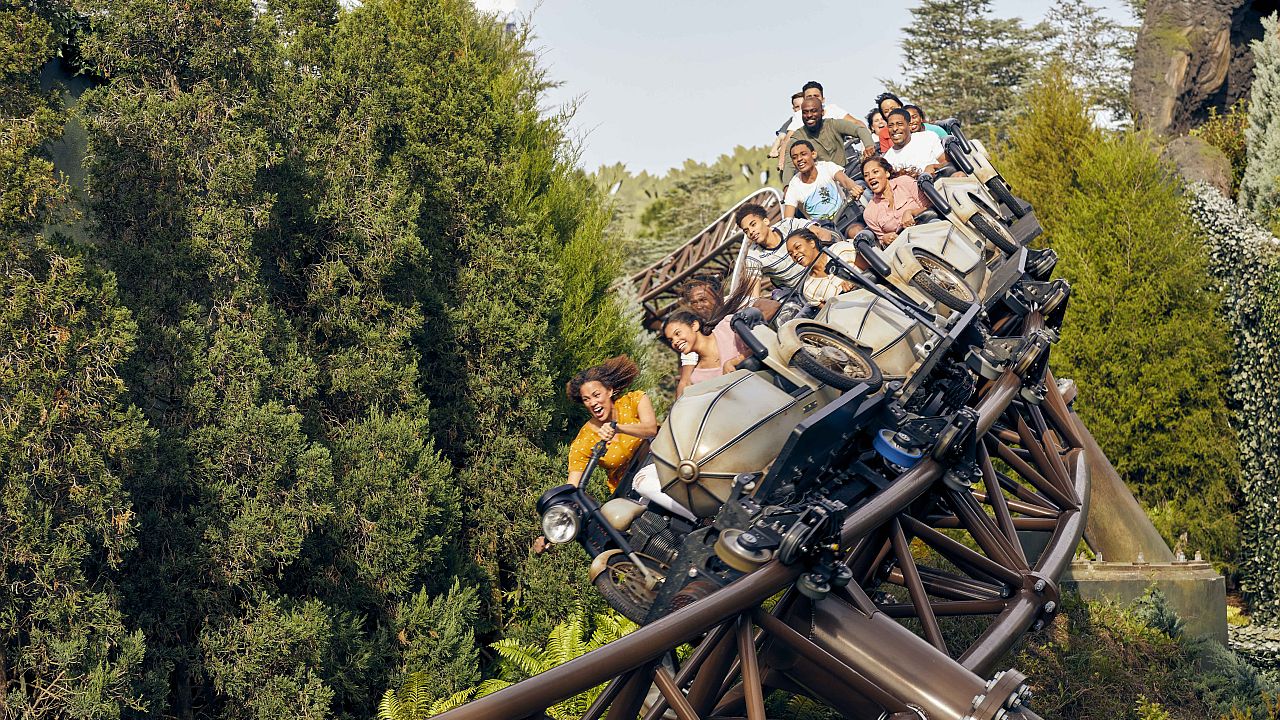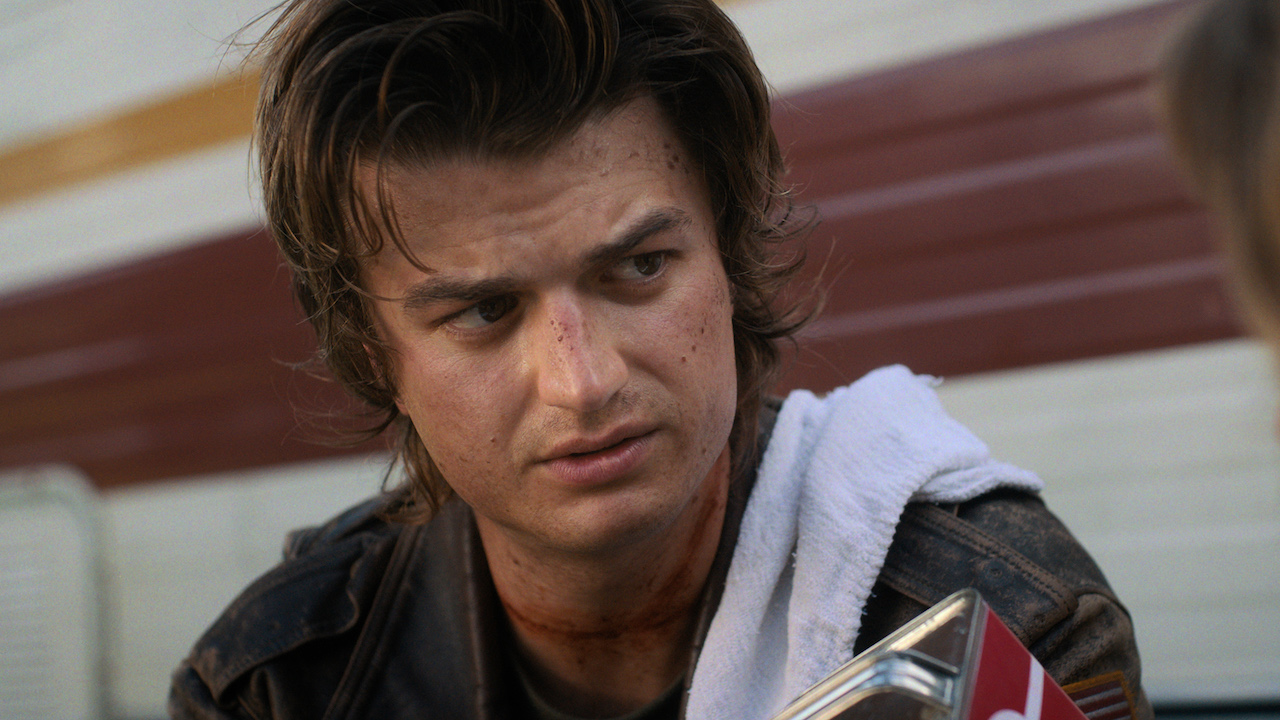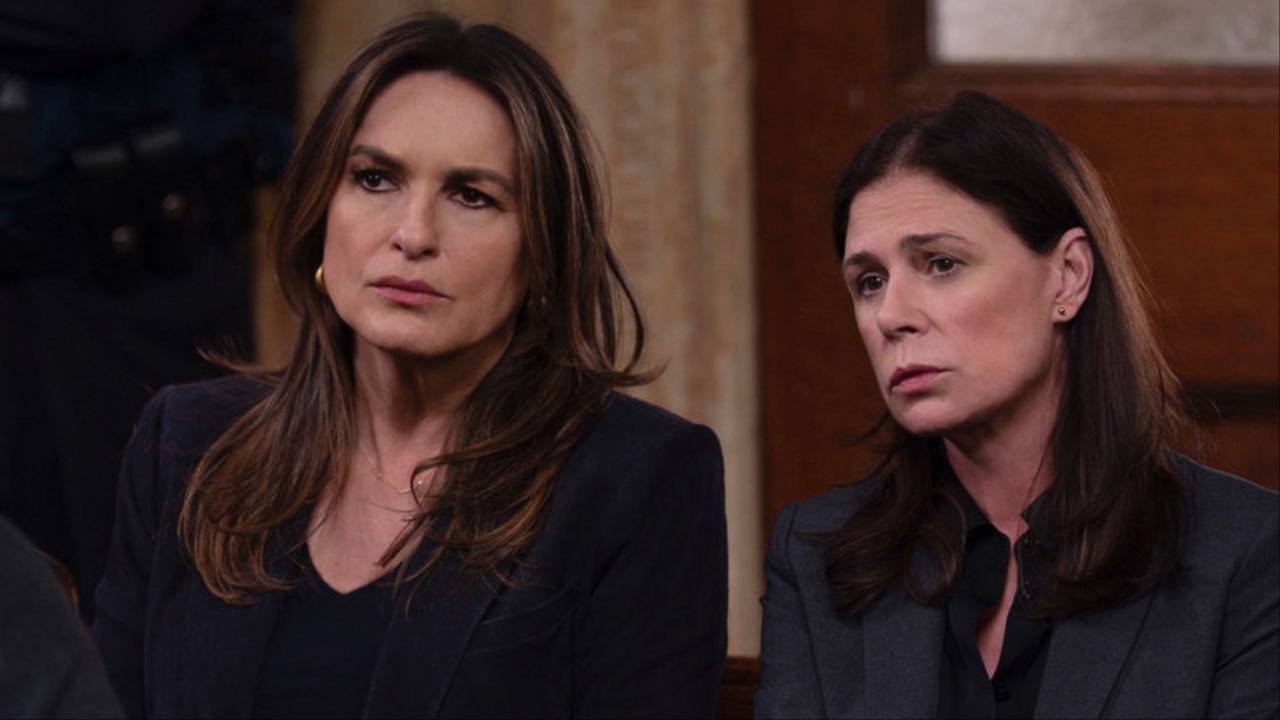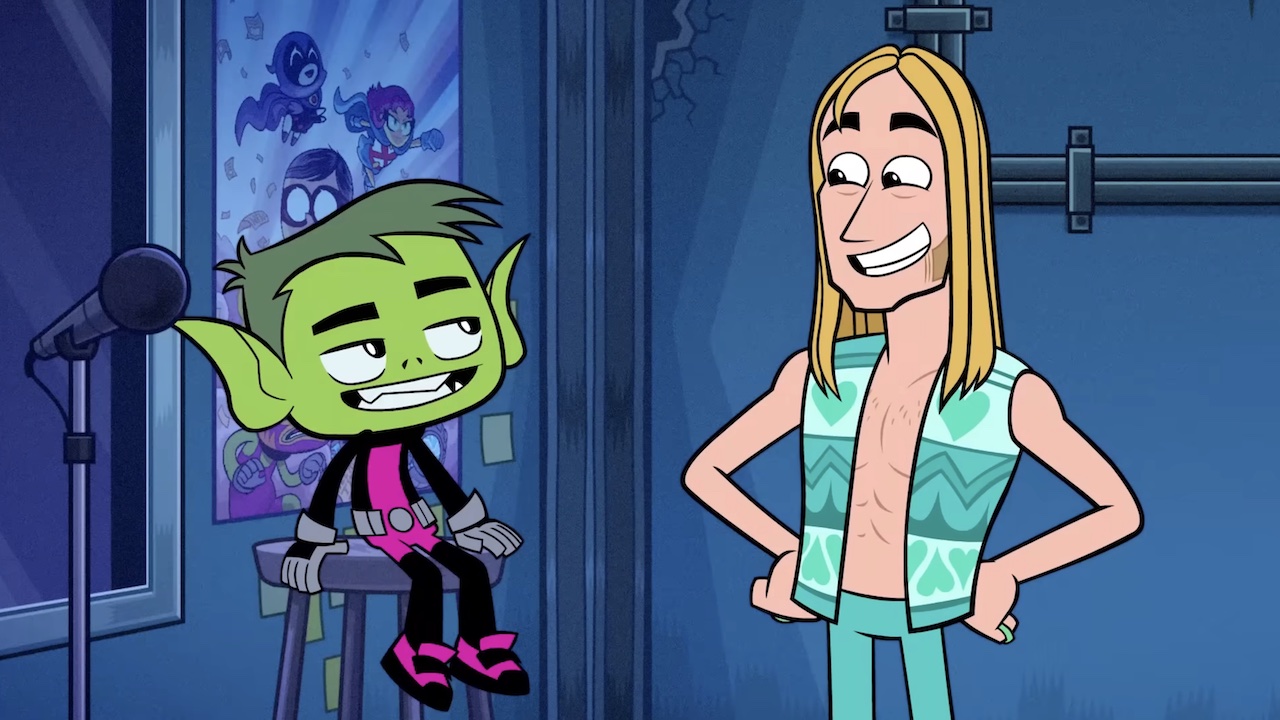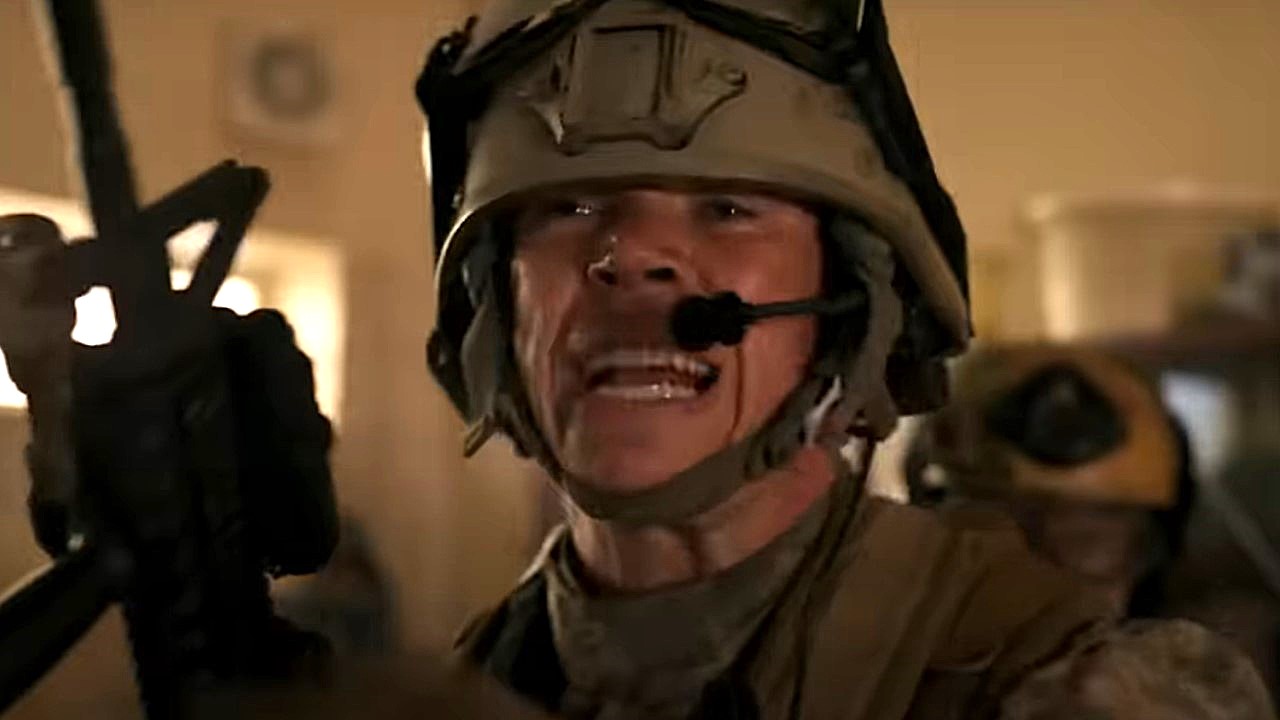All The Planet Of The Apes Movies, Ranked
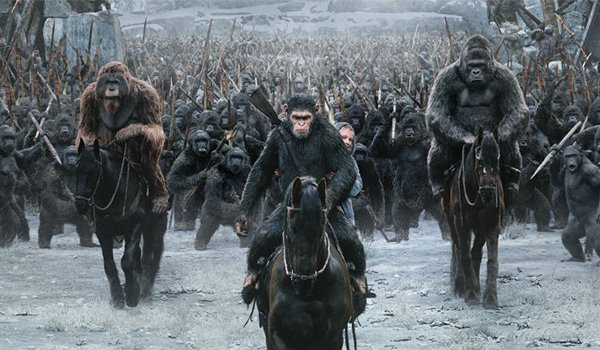
Before The Avengers, before Harry Potter and even before Star Wars, there was the Planet Of The Apes series. Starting with the original in 1968 and now up to its ninth film in the series, War For Planet Of The Apes, the series was one of the first major franchises in movie history.
Sure, there had been some long-running B-horror movie franchises and a handful of other examples in other genres – most notably James Bond - but Planet Of The Apes was basically the first one that set the template for what we understand to be major franchises, like The Avengers and Star Wars.
All told, there have been books, graphic novels, a TV show, toys and video games based on the series, just as there are for modern franchises. There are also nine Planet of the Apes movies that make up the franchise, though unlike some of the major franchises, the nine are separated into three distinct versions of the story and there isn’t a linear story to all nine. But, with that said, let’s get into which of these movies is the worst, which is the best and which ones fall in between.
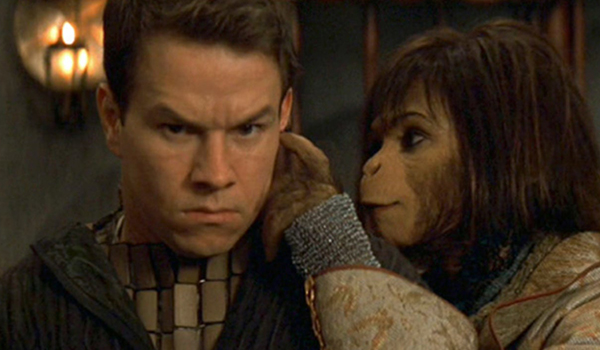
9. Planet of the Apes (2001)
Tim Burton’s remake was supposed to be a hit. It had fans of the long-forgotten series, which had not released a new film for almost three decades, salivating at the thought of what the great Tim Burton could do with the world they loved. Surely his unique way of looking at things and his distinct style of filmmaking was perfect for a remake. After all, his Batman movie in 1989 reinvigorated that franchise.
Instead, sadly, this Planet of the Apes movie was a total disappointment. The whole project was in production hell for years before Tim Burton and his crew would take it on, casting Mark Wahlberg as a human astronaut that goes forward in time thousands of years and ends up on the Planet Of The Apes. Tim Roth plays the villain and Helena Bonham Carter stars as the love interest of sorts.
The plot is a time-traveling mess and it’s hard to follow, but it ends with Marky Mark somehow going back in time to what he thinks is his own time, on what looks like his Earth, until he looks up and sees Tim Roth’s ape character sitting on the chair in the Lincoln Memorial. So… it’s even further into the future? Who knows.
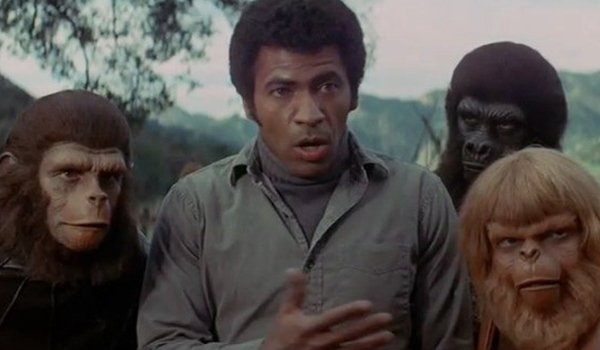
8. Battle for the Planet of the Apes (1973)
Battle For The Planet Of The Apes was the fifth and final installment of the original series. It was made on a shoestring budget and it shows. Even the reviews of the day said it felt like the franchise was on its last legs.
CINEMABLEND NEWSLETTER
Your Daily Blend of Entertainment News
The film opens in the future, but tells the story, in flashback, of how Caesar, played by Roddy McDowell, after the war of Conquest Of The Planet Of The Apes, attempts to rebuild the world. His human foe, Kolp, leading what is left of the human population, rises up against Caesar and the Apes, and after some serious fighting, peace is made between the apes and the humans.
The movie, like its predecessor, Conquest, is meant to be a comment of racial equality, but also like its predecessor, it is little too on the nose and a little ham-handed.
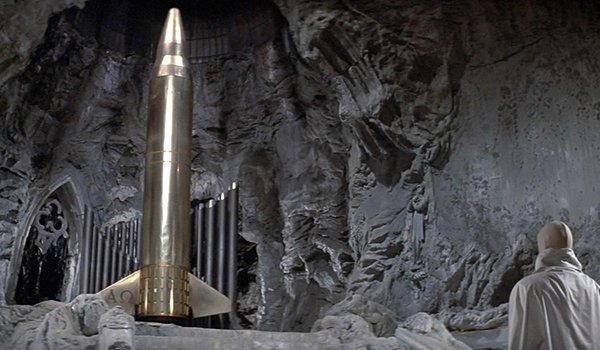
7. Beneath The Planet Of The Apes (1970)
Beneath The Planet Of The Apes was a hastily thrown together sequel of the original 1968 movie, and it shows. Like a lot of direct sequels to big movies in the '70s and '80s, it sort of doesn’t fit into the larger narrative. Though it does end in the nuclear explosion that does create the post-apocalyptic world that would drive the events of Conquest Of The Planet Of The Apes.
Charlton Heston does briefly return from the original, though his role is significantly smaller, as the story follows another astronaut, Brent, that followed Heston’s character, Taylor, to the planet to rescue him. Roddy McDowall, who plays Cornelius in the original movie, is absent from this one, again showing that the big picture wasn’t in play here, as his character would become very important to the story arc in the future movies.
Beneath The Planet Of The Apes a good enough movie, but it really lacks the broader vision that would come with the following movies. It’s just sort of a cut and dry simple sequel that quickly tries to follow the main story of the first movie and the bigger picture, including the weird telepathic humans that don’t really have much of a larger role in the following movies.
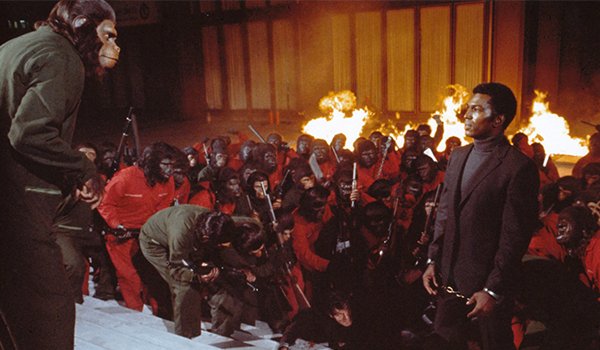
6. Conquest Of The Planet Of The Apes (1972)
Conquest Of The Planet Of The Planet Of The Apes is the first time fans of the series would meet a fully grown Caesar. The character Caesar is perhaps the most famous character in the series, as he played a pivotal role in the end of the original five films and is the hero of the reboot series that began in 2011.
Conquest Of The Planet Of The Apes follows Caesar, who was born to Cornelius and Zira in Escape From The Planet Of The Apes, which was set in the 1970s. In Conquest, set in the early 1990s in America, Caesar is living as a circus performer, hiding his ability to speak and his intelligence with his handler, Armando.
Caesar is tracked by Kolp (who is also fully introduced in this film) and is eventually captured, but he escapes after he avoids execution. Caesar leads the apes in rebellion against the humans, and at the end he shows his mercy and makes a speech declaring peace and his desire to see apes and humans live together, a theme that was continued in Battle.
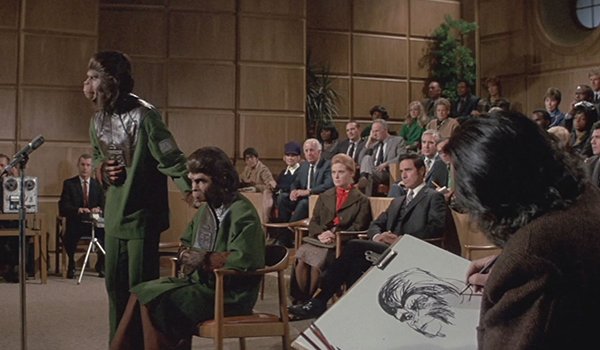
5. Escape From The Planet Of The Apes (1971)
Escape From The Planet Of The Apes is when the series really starts to put together a larger story, and it all sort of happened as a happy accident. Due to budget constraints, the film was set in 1971 New York City, so it wouldn’t require elaborate sets and costumes like the previous two.
Roddy McDowall returns to the fold as his character, Cornelius, and his wife Zira escape the apocalypse of Beneath on Taylor’s spaceship and land in current-day New York. At first they are welcomed, but, as would become a recurring theme in the series, they're eventually discriminated against once it is revealed that Zira is pregnant with Caesar.
Escape From The Planet Of The Apes begins the larger story of how the apes came to dominate Earth in the future and the genesis of intelligent apes. Like all the movies, it’s a little cheesy compared to today’s movies, but the story has vision, which was not only new for the Apes movies, but also movies on the whole. The first true sci-fi franchise was really born with Escape From The Planet Of The Apes.
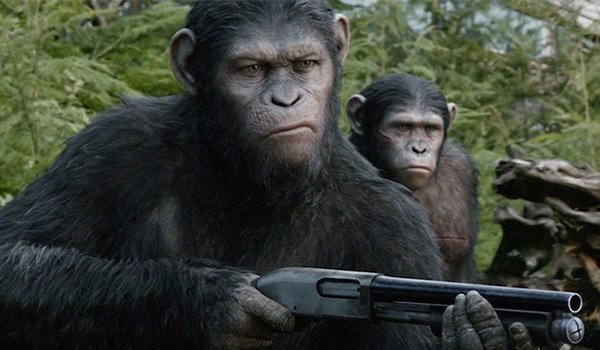
4. Dawn Of The Planet Of The Apes (2014)
Dawn Of The Planet Of The Apes is the second entry in the rebooted trilogy that starts with Rise Of The Planet Of The Apes. It explores the beginnings of the conflict between the newly intelligent apes, led by Caesar, played by the absolutely amazing Andy Serkis, against what is remaining of the human population after the Simian Flu that gave increased intelligence to the apes and all but completely wiped out the human population.
All three films in the rebooted trilogy are excellent and Dawn is no exception. Going back the first one, Rise, one of the smartest things the creators of the new series did was ground the origin story of the Caesar and the smart apes in true science fiction. Instead of a simple story that starts with a time-traveling astronaut, they base the genesis of the smart apes on biotech and simple evolution. It’s a great choice.
Unlike the original Planet of the Apes series' first sequel, it’s clear from this sequel that the larger story has been more fully fleshed out from the beginning. While much of Dawn deals with the internal conflicts among the ape population, particularly Caesar and his rival Koba, the big picture conflict with the humans is at the heart of it, as Caesar wants to live in peace, but Koba sees no option but war. Like the original series, the reboots serve as a commentary for race relations and equality.
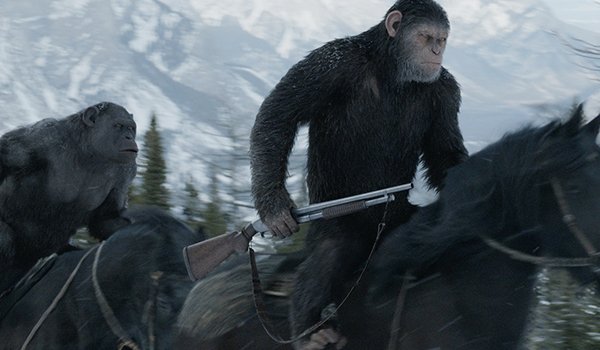
3. War For The Planet Of The Apes (2017)
The final installment (for now) of the new trilogy, War For The Planet Of The Apes is a tremendous conclusion to the Caesar story and the origins of the “new” planet.
War For The Planet Of The Apes is also filled with nice references to the original series, like the twist of having Caesar’s son named Cornelius, rather than Cornelius being the name of Caesar’s father in the original series. Caesar also rescues a mute woman named Nova, which is a nod to the original character Nova from the first movie, who is also a devolved human.
The plot of the film is driven by great performances by Andy Serkis again as Caesar and Woody Harrelson as his human antagonist, the evil Colonel. War continues the broader themes of equality by using The Colonel as human obsessed with killing the evolved apes rather than live in harmony, and this eventually leads to Caesar being forced into a position that he didn’t want to take: a violent uprising against The Colonel and his men.
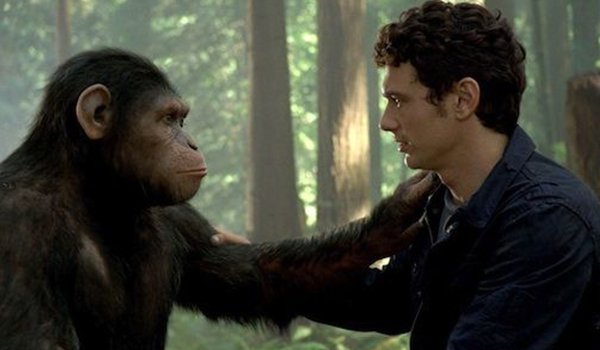
2. Rise Of The Planet Of The Apes (2011)
The reboot of the Planet Of The Apes series was an instant classic. Unlike its two successors, Dawn and War, it is light on pure action, at least until the end, and it is strong as an origin story. Like most great science fiction, the story is based somewhere near reality.
In Rise Of The Planet Of The Apes, viewers learn about a drug that James Franco’s character, Will, is developing to treat Alzheimer’s Disease. Testing for the drug is being done on apes. One of the apes is Caesar’s mother, and when she is exposed to the drug, her intelligence increases dramatically. However, she also loses control and is shot, but not until after she has given birth to Caesar, who inherited his mother’s intelligence.
Will takes Caesar home and continues to secretly develop the drug for his father, who is suffering. Eventually, Caesar begins to understand the larger world and his low standing in it as a primate, and after attacking Will’s neighbor, he ends up in monkey jail, which further steels his resolve to rise up. He does finally lead a revolution and the movie ends with Caesar and the rest of the apes escaping to the Redwood forests of Northern California, setting up the conflicts of the future.
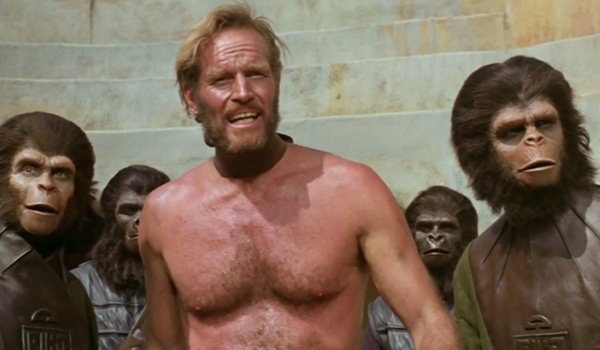
1. Planet of the Apes (1968)
The one that started them all is still the best. Sure the original Planet Of The Apes is a little campy and it’s not nearly as slick or as good looking as the reboots, but it is the one that first grabbed people with the amazing story with the incredible twist.
The first time anyone sees the movie, especially if they don’t know the ending, it digs deep into the viewer’s imagination. The twist, when Charlton Heston’s character Taylor sees the top of the Statue Of Liberty and realizes that he is in fact trapped in the future and that the fate of humanity is doomed, is just brilliant. It’s the kind of story that sticks with audiences for a long time. It’s frankly one of the most iconic scenes in movie history.
Planet Of The Apes deserves its place at the top of the list because obviously without it, there would be no list. It has its drawbacks, like how the special effects are primitive (no pun intended) by today’s standards, but that doesn’t matter. It’s the story (and that twist) that matter. Charlton Heston’s performance is great, as is Roddy McDowall’s as Cornelius. It’s a movie that everyone should see at least once and probably way more than that.
So that’s the list. We hope there are more Planet of the Apes movies in the future, but in the meantime, what do you think? Let us know in the comments and answer the poll below!
This poll is no longer available.

Hugh Scott is the Syndication Editor for CinemaBlend. Before CinemaBlend, he was the managing editor for Suggest.com and Gossipcop.com, covering celebrity news and debunking false gossip. He has been in the publishing industry for almost two decades, covering pop culture – movies and TV shows, especially – with a keen interest and love for Gen X culture, the older influences on it, and what it has since inspired. He graduated from Boston University with a degree in Political Science but cured himself of the desire to be a politician almost immediately after graduation.
